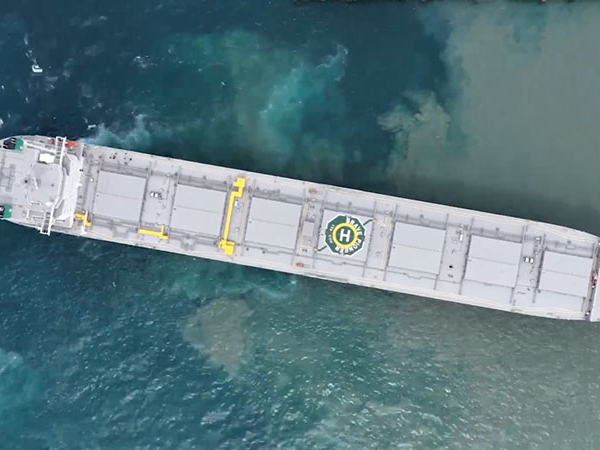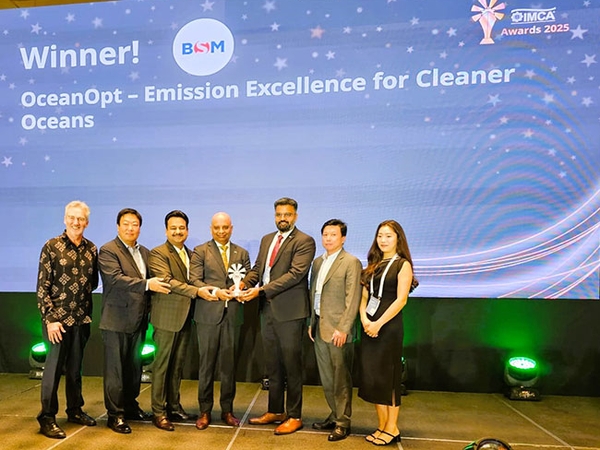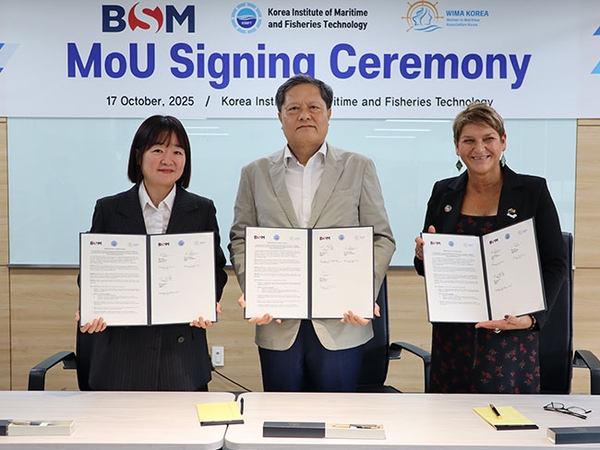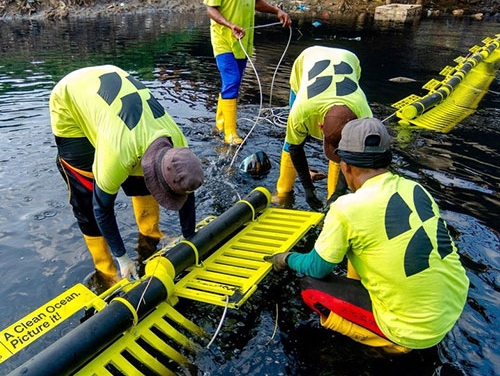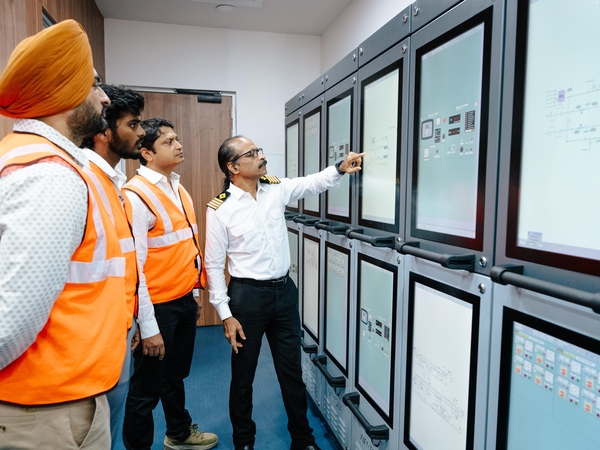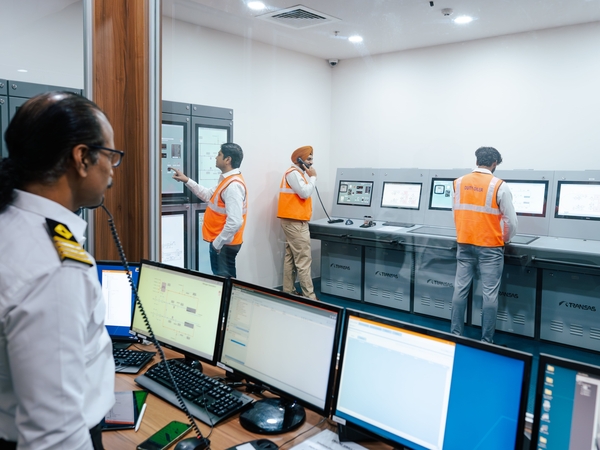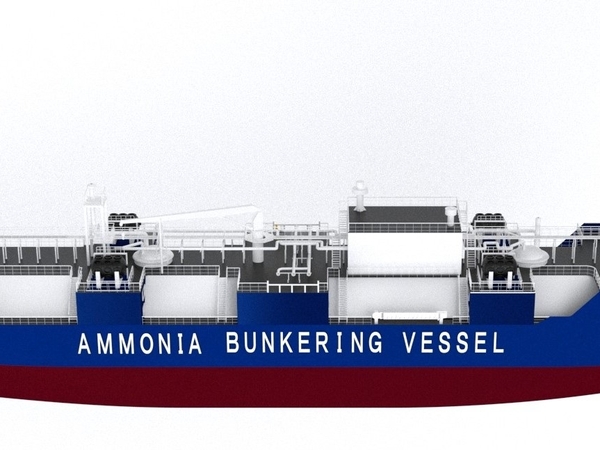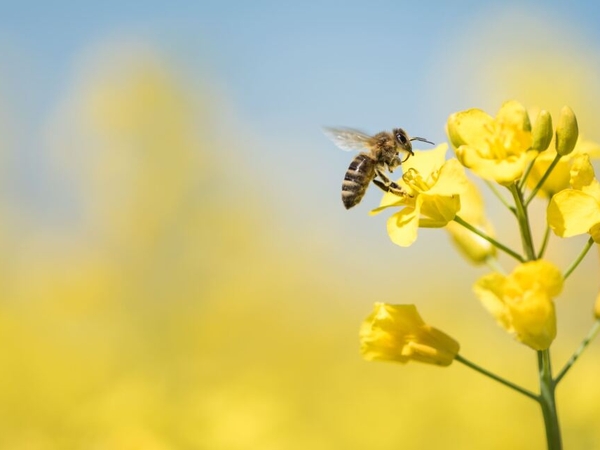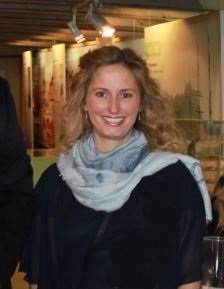
February 11th marked the UN International Day of Women and Girls in Science.
We are honoring women and girls in science, globally, by sharing stories of our own amazing female colleagues and their journey in the Maritime Industry.
In our 2nd ‘women in science’ series we interviewed Constanze von Brocke, LPSQ Superintendent at BSM Germany.
Read below as she explains more about her role in science and the maritime sector. Her passion about shipping and sciences is evident as she expressed the desire to grow within her role.
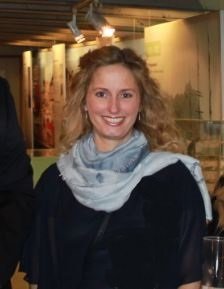
What is your academic background and was science your passion while growing up?
Since my childhood, I wanted to deal with vessels. This turned out to be exactly the right decision, although I am not coming from a traditional seafarer city and my friends could hardly understand my preference in shipping.
After spending some time as a trainee on a reefer vessel during a school vacation, I studied nautical science in a small village in Germany, called Elsfleth. In order to improve the safety on board vessels, I decided to write my Bachelor thesis about the implementation of new strategies in pirate defense. Until today I am very happy to have pursued my childhood dreams and don’t regret my decision although joining the industry in a downturn.
Please describe your role in your organisation and what you enjoy most about it.
I am the Team Leader & Superintendent of the LPSQ Department (Loss Prevention Safety Quality). The LPSQ Team consists of four team members. During my daily business, I work with various departments in our company to ensure that all ships and operations are performed in a safe and smooth manner according to the latest industry standards. Each case and incident investigation which we deal with involves nautical and technical knowledge.
It motivates me to find a solution for each situation that improves the protection of our seafarers on board and the environment. Our main goal is the safe operation of our managed vessels and that our seafarers come home safe and healthy.
How did you arrive at this role? (Was it your intention at a young age to always go into this industry?)
Due to the aftermath of the financial crisis and the following downturn in the marine industry, I couldn’t spend a long time at sea and thus started onshore as a superintendent assistant. Quickly after I got promoted to nautical and technical superintendent, I developed skills within an operations role and finally used this knowledge to make our operations safer in my current role as LPSQ Superintendent. Although I did not have the goal to work within the LPSQ environment at a young age I am very happy where I am now and am looking forward to grow further in this role.
How have you worked within the maritime sector to improve women’s role in the science field (e.g. technical, mathematical, architecture, IT) positions?
Our team is a mixed team. I do treat everyone the same, irrespectively of their gender. Within BSM I feel that genders do not matter, and I am equally supported and respected compared to my male colleagues. I do want to encourage women to take on roles within our field of specialization if they want to. However, I still see plenty of improvement possibilities within the maritime industry and chances to work on improving our openness to treating everyone the same and embracing gender equality.
How do you feel the field of science has embraced the talent and value of women? (Please feel free to elaborate on your personal experience here).
The shipping industry is still dominated by men which creates challenges to women. Often there are meetings where I am the only woman in the room. I do think that as a woman, we still need to prove ourselves, that we can provide the same quality and results as males, sometimes even with better results.
These moments, always give me the opportunity to show how well I can hold my own as a woman. I am happy to see that my company contributes to promote the skills of women in their ranks. Meantime we have female members in our management team who show that women are as equally as men able to participate in decision-making processes.
What excites you or interests you most about this industry and how does this motivate you?
The day to day business includes a lot of unplanned tasks. You never know in the morning what to expect during the day. It is my scope to find the right solution quickly and therefore guarantee the safety of our crew, the ship, and the environment. Furthermore, it is my duty to organise and manage the tasks within the team and keep a good team spirit. It helps that we are working as one, following the same goals to improve the different aspects as incidents, improving safety culture, training, environment, inspections, audits, etc. – this really motivates me. Additionally, I like the work with various people in our organisation which makes it enjoyable and exciting.
Please share something personal about you / your personal experience / achievements / challenges overcome that the reader may find interesting or inspire the future generation coming from this background into our industry.
Back to stereotypes: I like baking and cooking; spending my spare time trying out new meals and sweets. My mottos are always “No worries, we’ll manage” and “Where there’s a will there’s a way” – well that’s a very direct german translation. If you are interested in anything, do not give up and believe in yourself. You can do it, irrespectively of your gender! I am very happy with what I have done and achieved today, and I am very much looking forward to the future. I had supportive promoters during my present career which I am very thankful for as they stood by me in each challenge.
